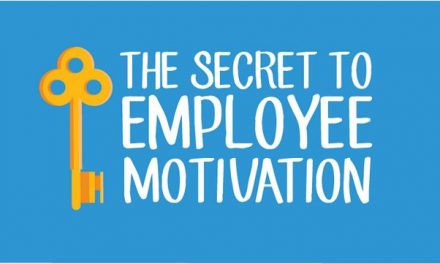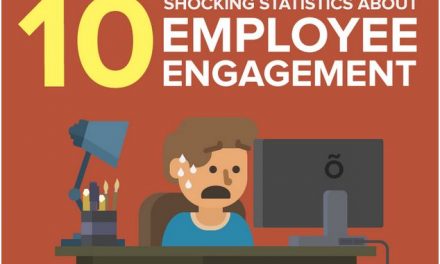When a colleague confides in you that their son or daughter is suffering from drug and/or alcohol addiction it can be a slippery slope to navigate. On one hand you want to help your colleague or friend, but you also do not want to get caught up in a potentially precarious position in the work-place. As a fellow employee and most likely friend, you want to show your troubled co-worker that you care and that you are there for them. But you also need to tread through the turbulent waters delicately. After all, your job is your livelihood and you do not want to jeopardize it.
If your co-worker has a teen or family member in treatment here’s how you can lend a helping hand:
Do some good old-fashioned research
If you want to truly help your colleague, it is imperative to understand what addiction truly is – otherwise you will not be much use to your co-worker. First of all, know that teen drug or alcohol abuse carries with it a stigma. The teen and family dealing with drug or alcohol addiction often feel ashamed. Unfortunately, society’s view of substance abuse is primitive and there is a serious lack of knowledge about the subject.
It is important to know that addiction is a disease. Many people do not realize it’s just like diabetes, for example and needs to be treated as such. You wouldn’t fault a diabetic for taking insulin. But there remains a double standard with addiction.
You must also truly comprehend how addiction can devastate the very fabric of a family’s foundation. It affects not just those who are addicted but their friends and family members. Anyone with a family member receiving treatment is undergoing a major social upheaval in their life and needs as much support as possible.
Go with them to support groups
It is one thing to inform your colleague about the various fellowship support groups they can attend like Ala-Anon and Nar-Anon that cater specifically to families unlike Alcoholics Anonymous (AA) and Narcotics Anonymous (NA) that are geared specifically to people actually in recovery from drug and alcohol abuse. But if you really want to help them through this tumultuous journey roll up your sleeves and attend meetings with them. If that is too much for you, then at the very least ask them about the meetings they attend to provide them with a much needed outlet. This way they won’t feel like they are confronted with this massive undertaking alone.
Gossiping is absolutely forbidden
There is a reason why your colleague confided in you about their son’s or daughter’s drug problem. You must have impressed upon your friend that you are someone they can confide in. Now just because they entrusted you with one of their darkest secrets that does not give you the right to tell other co-workers. Even if your friend has been open with other co-workers about their family crisis it is better to be tight-lipped about the subject and err on the side of caution. At the very least, ask your colleague what you should do if another co-worker mentions his or her teen’s drug or alcohol addiction.
Listen
You can really help someone overcome a family catastrophe like drug addiction by simply listening. According to Bernard Ferrari, the author of (“Power Listening: Mastering the Most Critical Business Skill of All,”) good listeners seek to understand—and challenge—the assumptions that lie below the surface of every conversation. He believes that one of the cornerstones of good listening is that in order to get what you need to know from your conversations you must listen and gather all the necessary information to offer the best possible advice.
Don’t be a yes man or woman
If your business colleague is not facing the problem head on, it does them no good if you just accept what they say when you believe they are in denial. Now, no one is saying that you should be arbitrary or combative. Pick your spots and don’t be afraid to offer your point of view.
Provide understanding
The importance of understanding can’t be understated when you are helping a friend navigate through a life-changing event like teen drug addiction. If your co-worker has a loved one receiving treatment it’s important to provide them with a steady stream of understanding and patience.
Show concern
Simply showing a bit of concern can also go a long way. Addiction has the ability to isolate people and make them feel alone and the same goes for their family. Asking someone for an update on their loved one’s condition is a great way to show them you care.
There is no way to sugar coat addiction. It is a dreadful disease. If you are helping a colleague in the workplace deal with their teen’s addiction, you may actually be the difference maker between an adolescents recovery or relapse.

About Karen Corcoran Walsh
Karen Corcoran Walsh, CAP, ICADC, MFT, ASAM is the owner and co-founder of the prominent teen rehab Inspirations for Youth and Families, and the Cove Center for Recovery, an adult therapy program. She has appeared on the Dr. Phil Show and the Ask Dr. Nandi Medical Show and has also been featured on a host of other television programs and radio shows focused on teen behavior and substance abuse, including “Teen Talk.”
Corcoran Walsh holds a Master of Science degree from Nova Southeastern University and is a Registered Marriage and Family Therapist. A former school teacher, she has worked with children of all ages for nearly 20 years in preschool, elementary, junior and senior high school. Prior to opening Inspirations for Youth and Families and The Cove Center for Recovery, she had a private family therapy practice and primarily served as an adult addiction treatment therapist.
Corcoran Walsh’s academic and professional success has been fueled by her unrelenting desire to raise the standards of treatment for mental health behavior, substance abuse, and alcohol addiction on a national level. She has been instrumental in achieving long-term treatment success through a series of carefully orchestrated, financially independent, and methodical business steps.
Source: Psychology Today, The Art and Value of Good Listening, Sherrie Bourg Carter Psy.D, https://www.psychologytoday.com/blog/high-octane-women/201209/the-art-and-value-good-listening






Trackbacks/Pingbacks